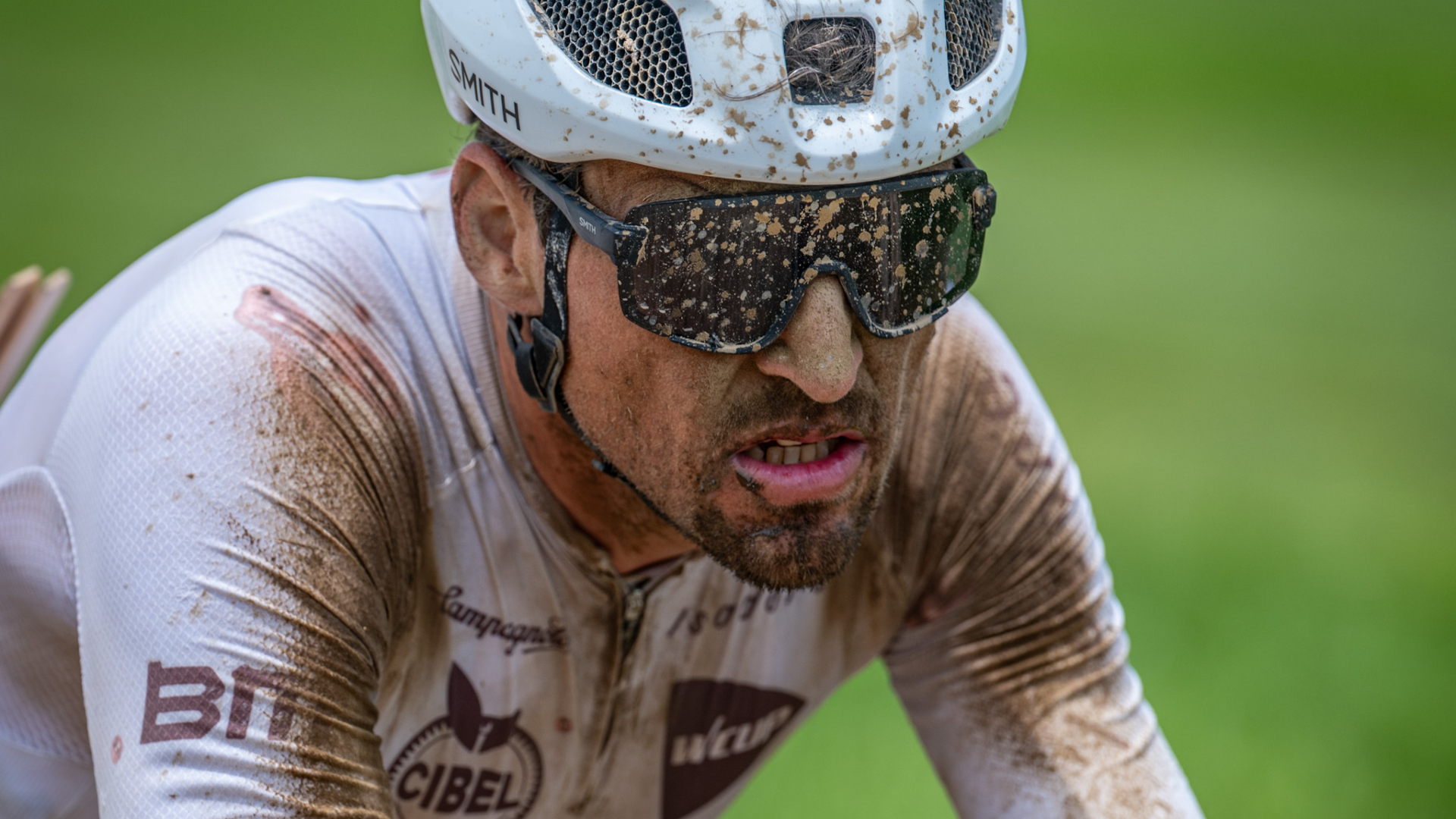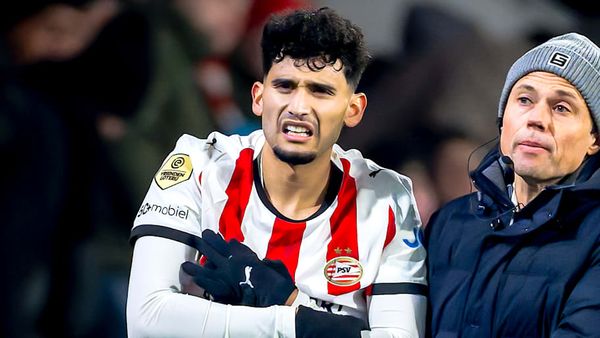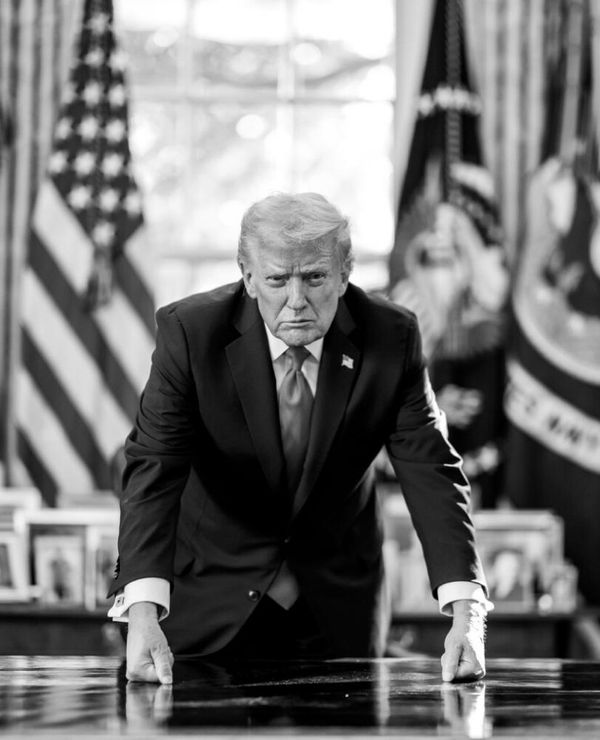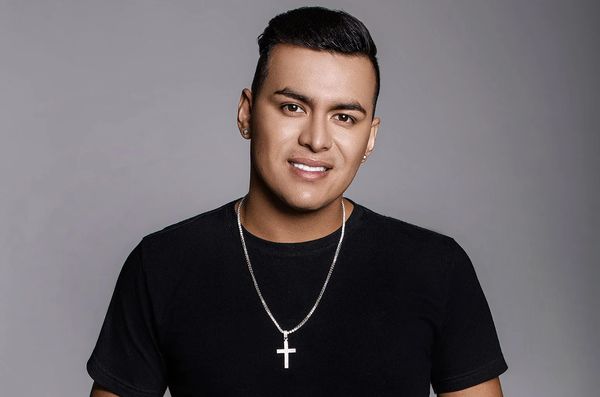
At the finish of last year’s blazingly fast Unbound 200 race, the riders trickled across the line looking battle-worn and wrecked. Everyone was crusted in dust and sweat, some were bleeding, others simply stared a thousand miles into nothing. They crumbled to the ground, wherever there was an unoccupied spot, and stayed down.
Cycling Weekly found Olympic and Roubaix champion Greg van Avermaet sprawled onto a patch of grass, battered and depleted. In his debut Unbound race, the Belgian had experienced just how unforgiving gravel racing in the Flint Hills of Kansas can be. He’d finished in a respectable seventh place, but it had been a crucible of a day.
Over the course of the 330-kilometre race, the 2016 Olympic road race champion was plagued by mechanicals. As the peloton averaged more than 35 kph, he blindly followed wheels, and three times, his tyres were punctured by rocks as sharp as weapons. But as a true champion, Van Avermaet fought back — fixing flats, chasing back on, repeating the pattern for the first 245 kilometres of the race, until he was finally able to get a wheel change at the second supported aid station.
“It took so much energy to come back on [to the group during] the first part of the race that I probably lost places because of that,” Van Avermaet said. “But in the end, I was also quite happy about the seventh place. It’s quite decent for doing that big race and having two flats, etc. I could have also ended up 15th with the same legs and two flats. So, yeah, in the end, I still made a decent, good result.”
While Van Avermaet was happy with his result, it was unclear if he’d ever return to Unbound again. The race is notorious for relentlessly testing the physical and mental limits of athletes. Even the former Gravel World Champion, Matej Mohorič, DNF’d the 2024 race after cracking a rim and vowed to stick to road racing.
At the time, Van Avermaet appeared to have a similar mindset and laughed at the idea of returning, stating: “Now is not the best time to ask. I think if you ask everybody now, the answer will always be no.”
But lo and behold: Van Avermaet is back for 2025.
The 2017 winner of Paris-Roubaix — the “Hell of the North” — knows how to suffer. After all, dealing with adverse conditions, including mechanicals or foul weather, is part of the DNA of Belgian cyclists. They know how to fight back, no matter the challenge.
“The biggest reason why I’m coming back [to Unbound] is just because at the end of the year, I was thinking which races suit me the best and Unbound was one of them,” the 40-year-old said. “I think it’s just one of those races where you at least have a little bit of draft of a peloton… and also the distance [makes the] start a little bit easier because it’s just a big day out — 10 hours on the bike.”
While 10 hours of intense racing may seem daunting to most, Van Avermaet has more than 15 years of WorldTour experience in his legs — something that pays dividends in long, tactical races like Unbound.
“I also feel like on the other gravel races [I’ve done], the longer the distance goes, the better I feel. So, [Unbound is] probably one of the races that will fit me a little bit better after getting more aged and having so many kilometres in the legs." he said.
However, this year Van Avermaet isn’t just at Unbound for himself. He’s built a team, GVA Gold, comprised of three riders, including himself. Jelle Van Damme, a former professional footballer turned gravel cyclist, and newcomer Julian Siemons, who placed sixth at Ranxo Gravel in 2024, round out the squad.
“[Siemons] is expecting a lot of Unbound. It’s kind of cool to have a little bit of a younger guy with us to share our experience with, and also he’s capable of a good result. I think if he has a good day, he can get in the top 20,” Van Avermaet said. “I would love that he just discovers himself and sees how far he can come. I think it’s much more important than having him as a support for me.”
Van Avermaet recognises that racing Unbound requires a team — and that it’s just as important to share his knowledge and experience with the next generation of athletes.
“I think you cannot [race Unbound] on your own and that’s also the great feeling that we experienced last year — that it was not seventh place only for myself but also for the people who took care of me the whole week. Just having the things right at the feed zone, nutrition-wise, cleaning the bikes, etc., etc. That was, for me, a great experience. Like I said, it’s just kind of like what I felt before with road racing — that when you have a professional team, you can reach goals.”
Before Unbound in 2024, Van Avermaet didn’t know what to expect. Never having raced Unbound — or any gravel event in the U.S. — there were a lot of unknowns. This year is quite different. He knows the course. He knows the terrain. He knows to expect anything. And he also knows the calibre of racing is rising. But his ultimate goal is simple: have a race free of problems and ride as hard as he can for 200 miles.
“I just want to have no problems. I think that’s, for me, the biggest [goal]. I would be satisfied with the results… if I can just let out all my energy on that day. No matter what the result is, I will be happy, I think.”







